22 Dec Piles
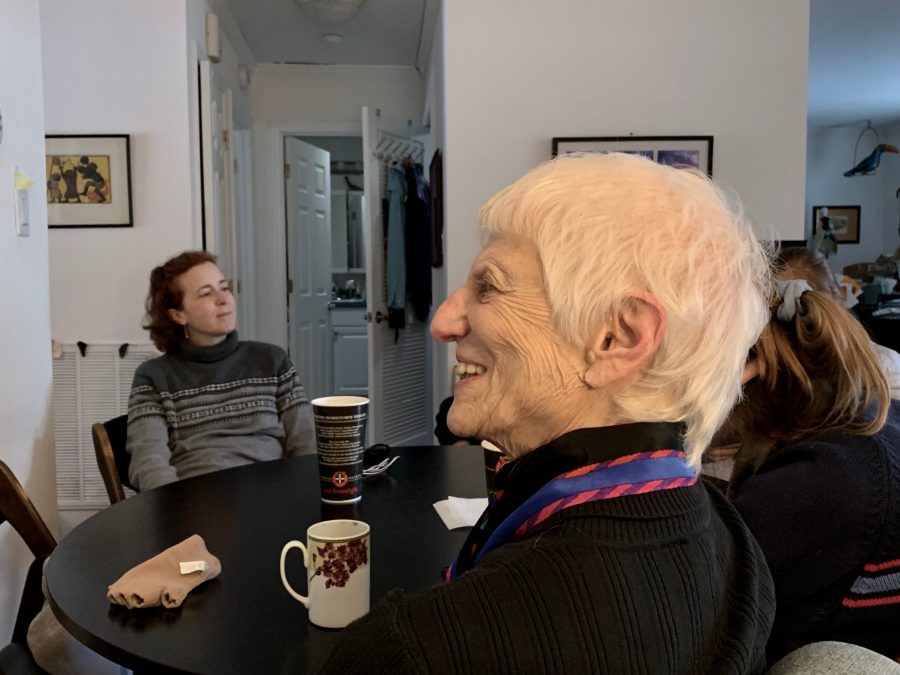
In early December I posted a radiant image of my mother on the first night of Chanukah. She got a lot of positive feedback on that image; maybe too much. A week later on her birthday so many people wrote to her about the picture that it kind of overwhelmed her. Turning 84 was hard enough on her already because it made her hyper aware of the fact that she is aging. She’s terrified about losing her memory as well as her ability to be independent and that fear feeds on itself. All the attention only stressed her out further because she felt an internal pressure to thoughtfully acknowledge all the people who reached out to her. That stress affected her memory and made her more more afraid of losing her memory which made her lose her memory- and so on and so on. Once that cycle gets going it’s hard to pull out of it.
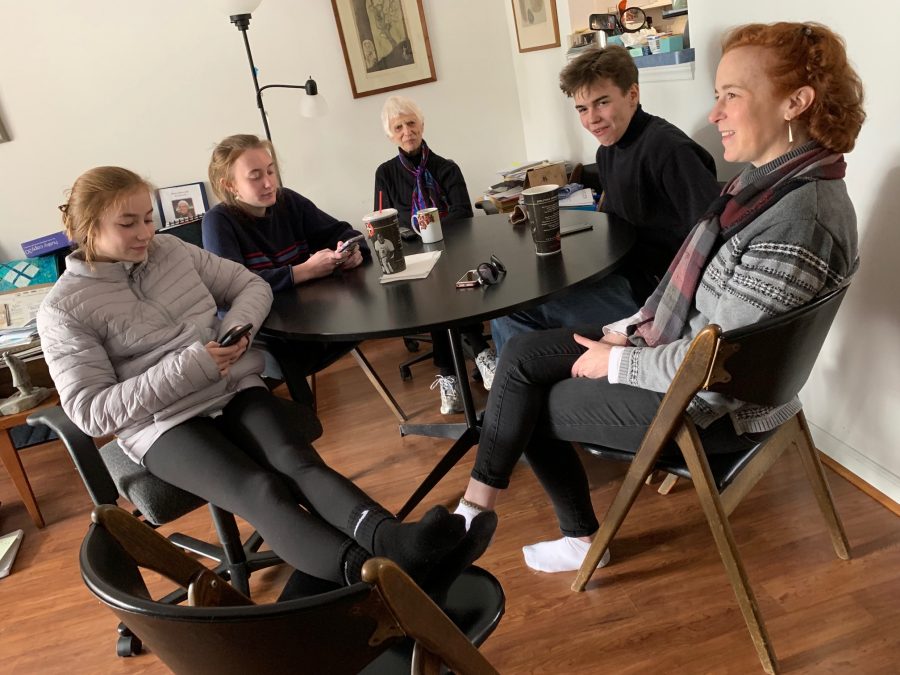
A few days before her birthday, we’d gotten slammed by a snowstorm. While the roads were pretty passable, the kids were still out of school so we took them to her apartment to have lunch for her birthday. She was sharp, focused, and funny despite the fact that she wasn’t very excited about turning 84.
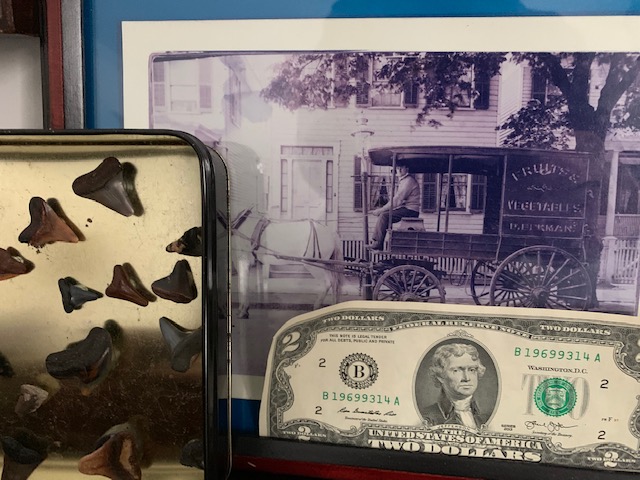
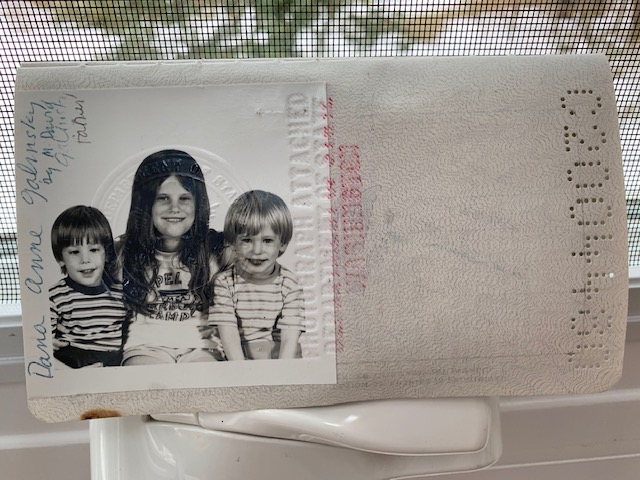
When I was a teenager my mother’s mother moved from Queens, NY, where’ she’d lived for nearly 80 years to a small apartment in our town. My parents talked to her almost every day on the phone and she came over for dinner on Sunday. As she aged her diving became increasingly tenuous. By the time I was in high school my brother or I would often drive over to pick her up for dinner, though she continued to do some errands on her own. I refused to get in the car with her driving. I’m at the same place with my mother right now, but she has not been interested in having a serious discussion about her driving.
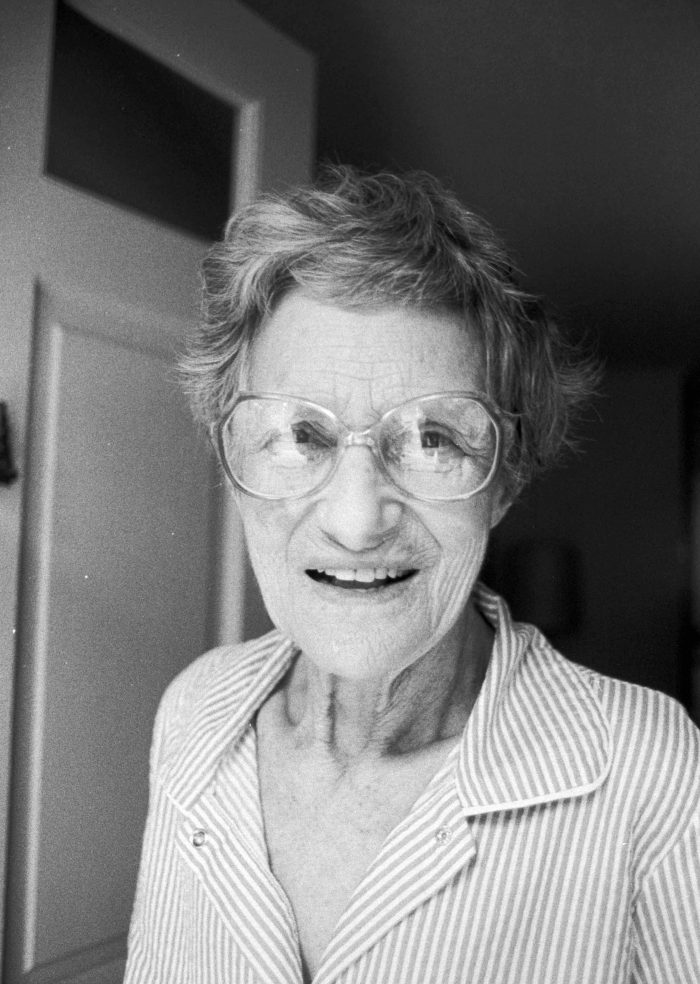
My mother had a fraught relationship with her own mother, and my father did a lot of the day to day dealing her. While we often dislike some things about our parents we also tend to take on some of their traits. However, I don’t recall my grandmother holding onto things like my mother does. Her apartment was fairly spartan. When she eventually moved to a retirement facility my parents took in a little bit of furniture but there was not much to move.
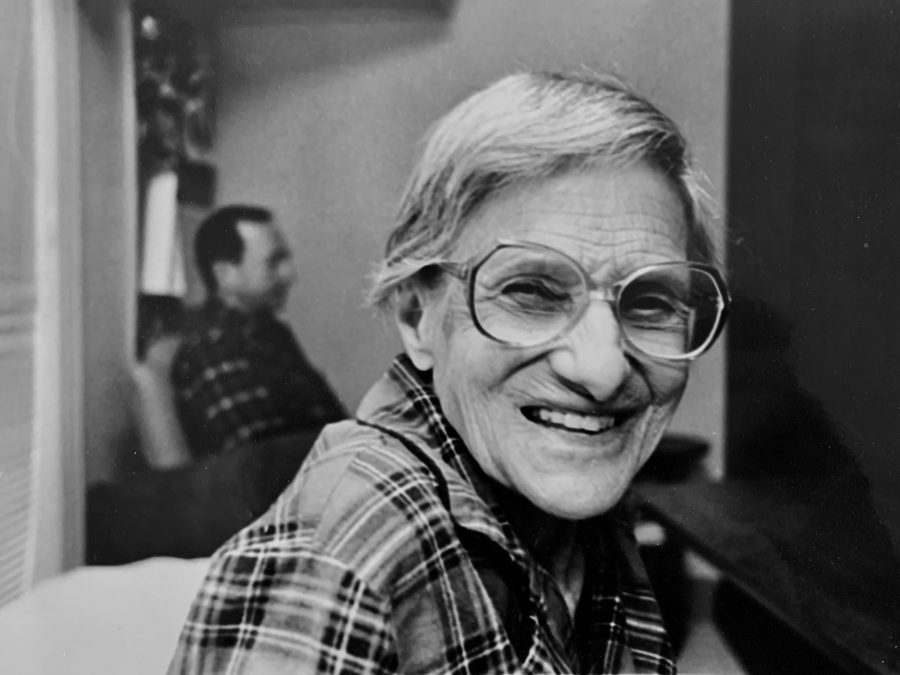
My parents worked hard to find a good place for my grandmother to move but the facility they found was not good, and she was miserable. My mother has had fears of living through something similar and those fears have escalated recently. She lives in a much better place, a community of small apartments from which people transition to an assisted living space. The set up means that the people who live there develop long term relationships with the other residents who visit them in the assisted space, which helps a lot.
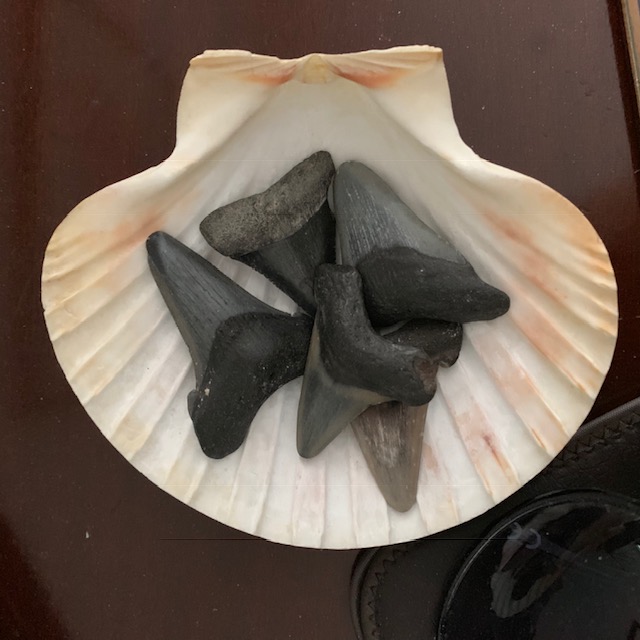
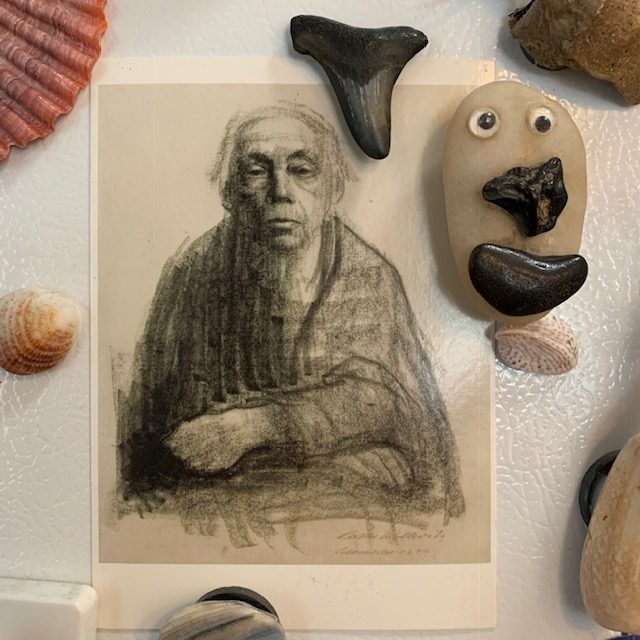
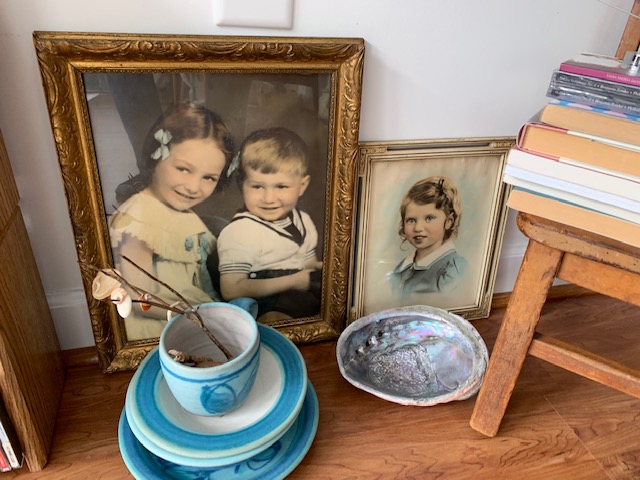
While we were at my Mom’s house, I spent a little time looking around.I noticed so many objects, books, and pictures that had been in our house while I was growing up. Many of them sparked memories of things like laying on a carpet, or going to my mom’s study to ask her something. My mom has always had a habit of piling things up: books, pictures, photos, notes, etc. Our fridge was perpetually covered with cards, notes, photos, and the magnets she made out of shells. There is some data about the fact that people who grow up in houses with books end up with an advantage in life. They get more degrees and have higher salaries. The data indicates that the children don’t have to read the books – it’s simply having them around that is correlated with these positive outcomes. I read a good deal when I was a kid, and the books that were piled up in our living room, and in my mom’s study had a powerful impact on me. As a young adult, I tended to collect books like my mother did, and this made it increasingly hard to move. When we moved to North Carolina from Brooklyn, I left almost all my books and records and Brooklyn. Out of sight, they are out of mind, and it’s easier for me to let go of them emotionally now. Watching my mother struggle with letting go of newspapers makes me even more committed to lightening my load now.
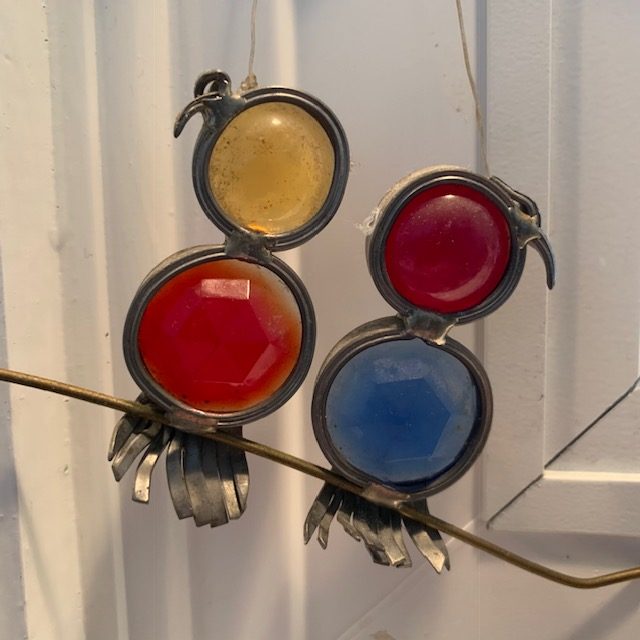
Still, seeing these objects that connect me to my childhood is quite powerful. These little blue and red glass owls hung in our dining room window and they connect me to a sense of a past that I have long forgotten. At the same time, while that that tendency to hold onto things has some value in connecting us to the past, dealing with these things takes physical and emotional energy. My mom had to get help clearing off her dining table in order for us to be able to come over. Also, she had re-arranged other piles before we came over, and still there was almost no where to sit. I tried to gently communicate how the physical objects piling up around her cause her to pile up emotional stress as well. She didn’t want to hear about it.
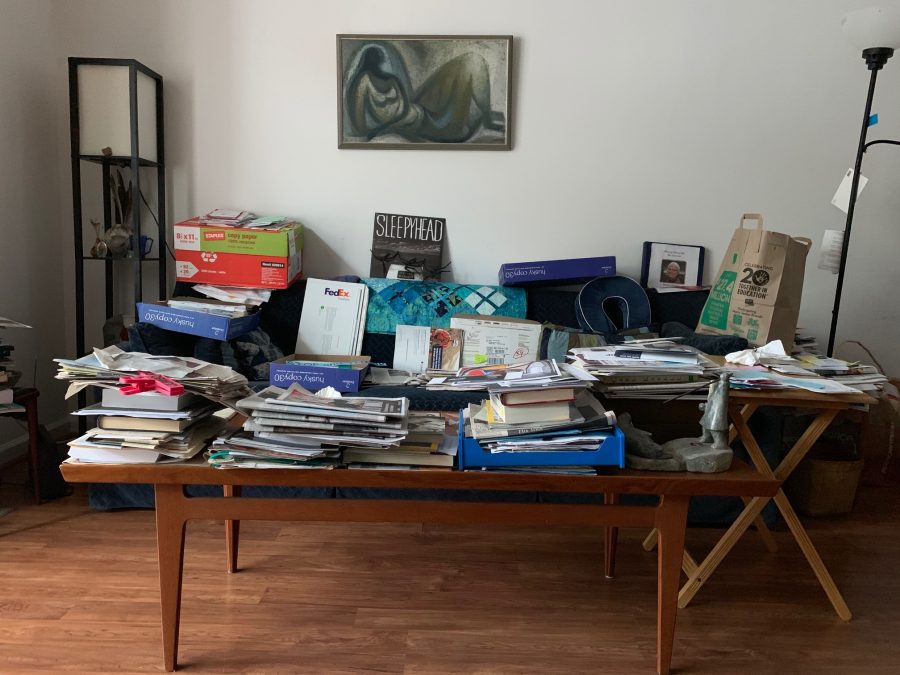
That night she went to dinner with a friend, and on the way to the restaurant she lost a glove. After dinner, she couldn’t remember where she parked the car, but her friend helped her trace her steps and they found the car. But then my mom insisted on continuing to look for the glove by herself after her friend left and she lost the car again. A friend of mine spotted her wandering around in the cold and started to drive her around looking for it. After a while, my friend contacted me, and I went to meet them. My mom was very frazzled by the time I got there. She kept saying that she’d already found the car but just got turned around- likely because her friend had helped her get to it. She and I drove long circles around town until I finally drove back to the restaurant. We found it in a parking lot nearby. She had insisted that it was on the street which is why we had missed it. In any case, it was late and I was reticent to have her drive home but I followed her most of the way there.
After getting so hyped-up and anxious she hardly slept that night. The following day, I called her around noon and she was rushing out to take her car in to get some work done so it could pass inspection. She sounded a little frantic and I tried to calm her down, but didn’t feel like I got anywhere. As she was already tired and depleted, the effort to get the car fixed pushed her well beyond her capacity. That evening her shoulder froze up, causing her intense pain. My mother has always been very sensitive to all kinds of stimuli and to pain. When I was a kid, she would often scream out in pain if the water was too hot in the sink. Still, that night she reported the pain as a 9 on a scale of 1 to 10 when talking with a nurse at her retirement community. In other words, it was pretty much panic-inducing. In talking about her extreme reaction to stimuli, I’m not intending to minimize the import of her response, but instead to give some context for how much it affects her. While I am also indicating that her stress was a major cause of that pain, I’m not insinuating the the pain was “all in her head”. Frankly, all pain is translated in our brains. I have had some bouts of extreme back pain, and I know just how panic-inducing it can be. However, I’ve also learned to respond to that pain rather than react to it- which means that the work I’ve done to deal with my emotions has had a powerful affect on my ability to … deal with my emotions (and my pain). In this case that work helped me to stay calm as I figured out how to get to her. I felt an impulse to become anxious and hyper focused on getting to the emergency room, but I reminded myself that being anxious or nervous wouldn’t help me get there- or help her- and I was able to stay calm. I was concerned of course, and allowed myself to feel that, but made sure I didn’t come close to being overwhelmed by it.
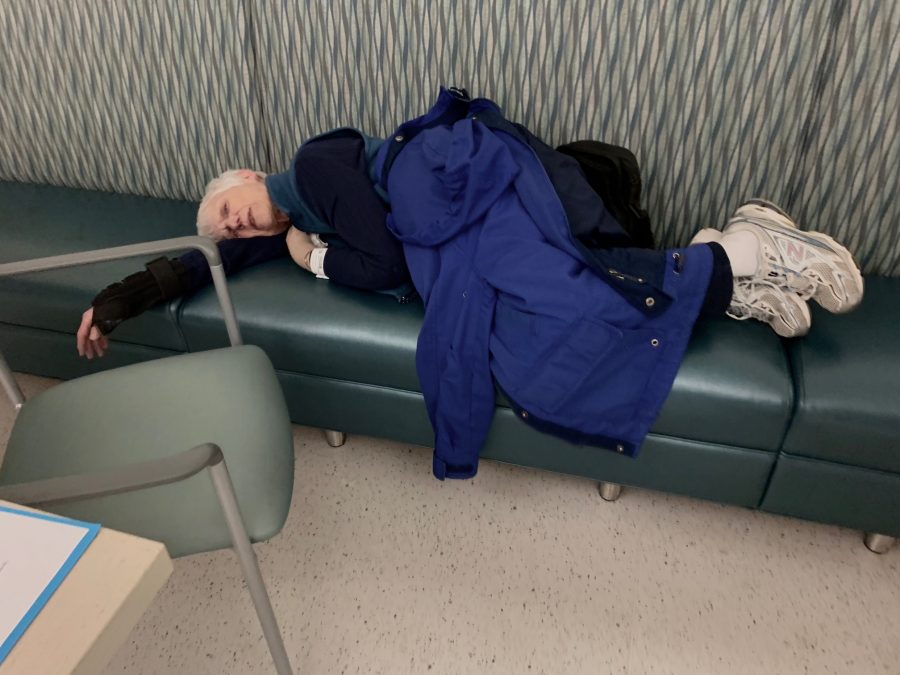
The retirement community she lives in put her in a van to the emergency room. By the time I got there, I found her on a couch, completely out of it, thirsty, and feeling hopeless. I could tell right away that it was exhaustion and stress causing the pain, so I did what I could to just keep her calm, get a physical examination, and get her home. Finally, we got her an x-ray that found nothing wrong. She was really out of it, and was conflating things that had happened at the doctor’s office with the conversations she had at the car mechanic that afternoon. Most of the thoughts had to do with worries and fears. She was terrified that she’d miss appointments for her teeth and her eyes and with her other doctors. I could see that with her memory taxed, she was in kind of a memory fear spiral. I’ve seen this in her a few times over the past couple of years. It’s like a rip current when she gets afraid of losing her memory that drives so much stress that her memory goes out the window.
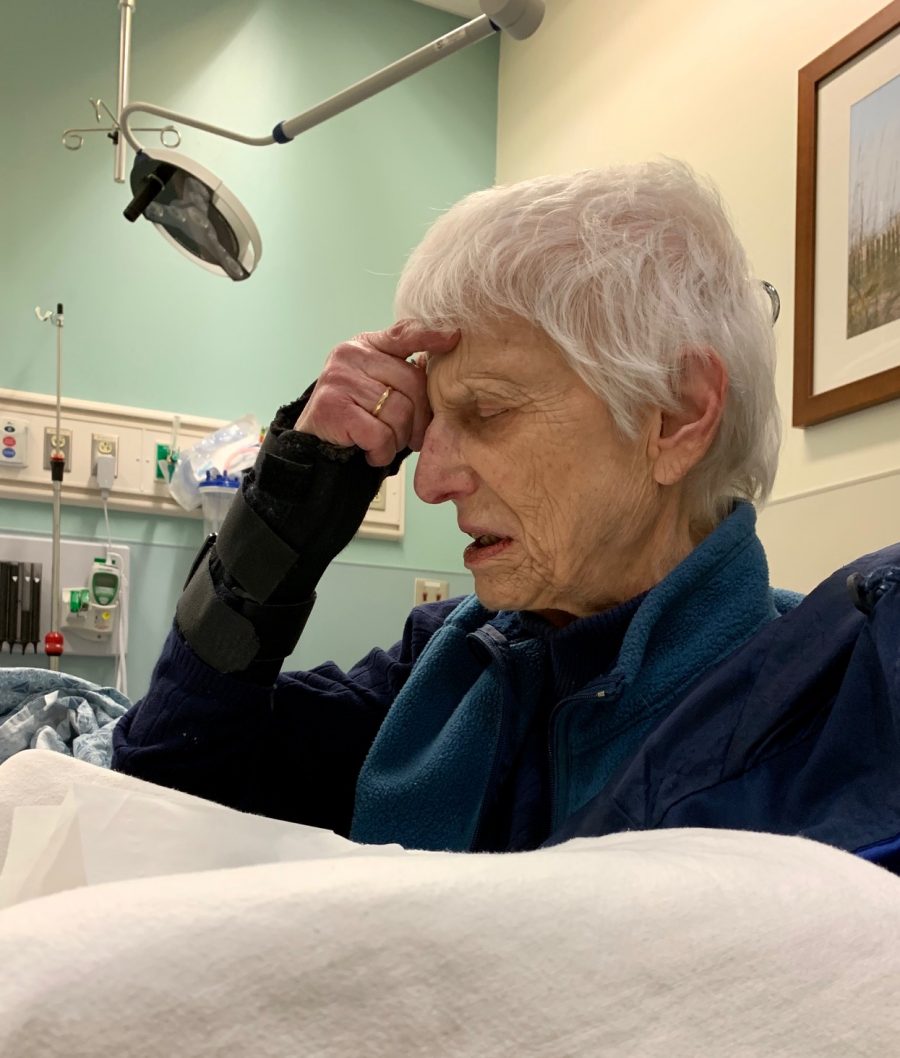
The RN understood this right away, and after thoroughly checking her shoulder, determined that it was muscle strain and allowed us to take her home before midnight. She and I had a little spat when I got her home because after a couple of Tylenol, she felt a little better and wanted to putter around. It was 1 am and I was planning on sleeping there, but didn’t want to go to sleep until she was in bed. Talking about it with her created too much conflict, so finally, I just went to bed on the living room floor and let her continue to putter around. I slept fitfully and woke up at about 8am. I laid there for a while on the living room floor, and once again noticed how crowded every surface was. I sometimes struggle with the same issue of having trouble letting go of things. Clearly we learn how to be in the world both through our genes and through observation. This tendency drives my wife crazy.
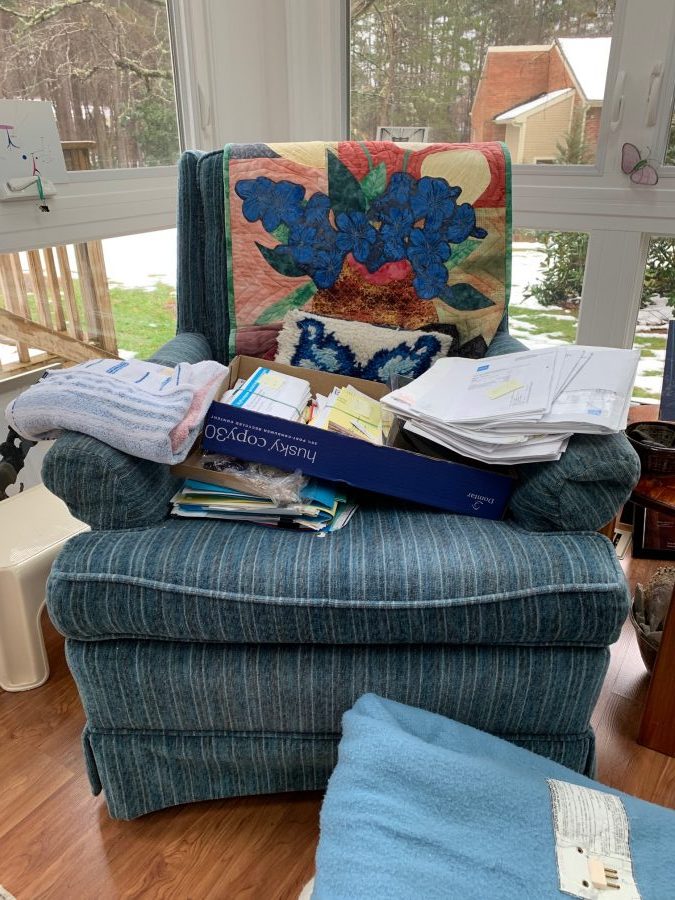
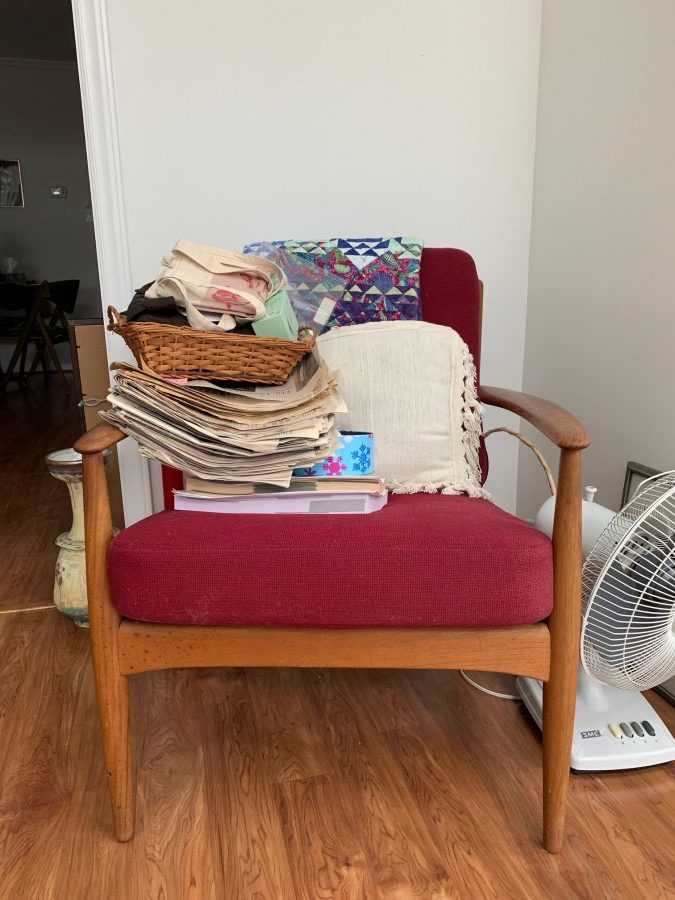
After cleaning up my blankets I did a little writing and continued to wait for her to wake up. By 11 I started to get a little worried. Finally, I went to check if she was still breathing. She was, and as I looked in on her, she slowly began to wake up. She was still in a lot of pain, and also very out of it. It was also clear that she felt better knowing that she had been checked out physically; this knowledge made the pain more bearable. I stuck around for a little while, but when a cleaning person came, I took the opportunity to head home. Over the next several days, she was really out of it and sounded weak. I checked in with her every day and after nearly a week, she started to sound a little peppier. I took the opportunity to suggest that she let me help her go through some of the piles. Clearly, she was falling behind in the things she wanted to get done, things were piling up, and I figured that helping her catch up might help her out of her hole.
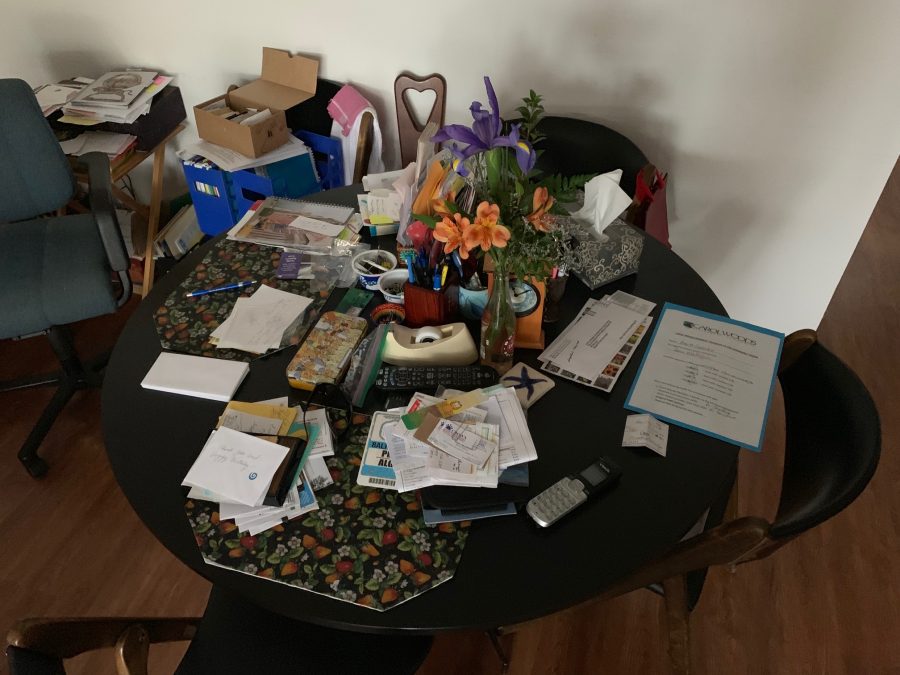
My mother can be hyper focused on being independent and I don’t always react well to that. Still, I was determined to help, and that meant responding to her need to feel in control with empathy. While we had some small hiccups, we managed to get a number of checks to charities written together and a bunch of them sent out. This cleared a couple of piles out of the way and that seemed to help. Just before we left for the holidays, I went over and packed up a few more. Today, when I called her from the plane before taking off, she was in the middle of going through her newspapers and starting to recycle them. We’re making progress.

No Comments